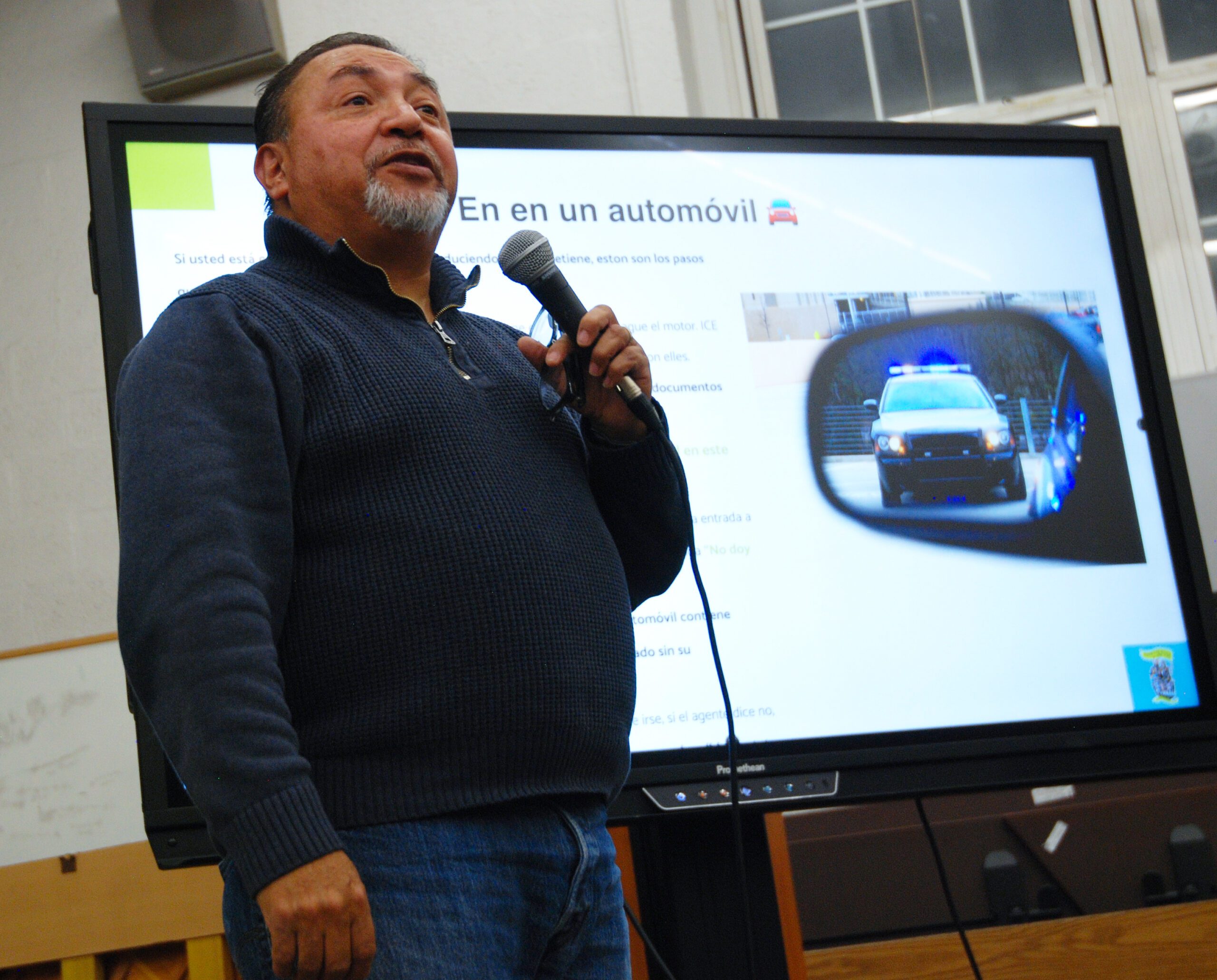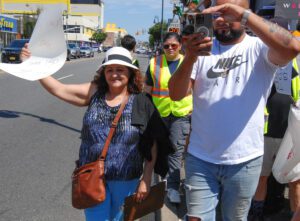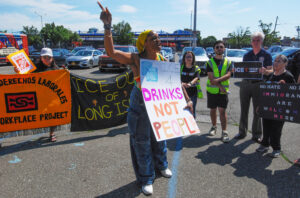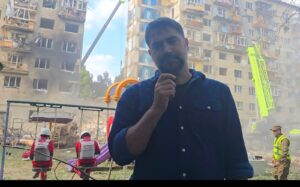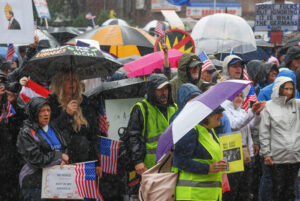By Ava Dela Pena and Gabriel Prevots
The expansive music room at ABG Middle School in Hempstead quickly filled last Monday evening with 70 attendees for the grassroots nonprofit Make the Road’s “Know Your Rights” workshop, designed to help immigrants understand their legal protections if they are detained or threatened with a deportation order by U.S. Immigration and Customs Enforcement.
Javier Guzmán, New York senior organizer for Make the Road, an immigrant rights organization with an office in Brentwood, led the hour and a half workshop. Himself a Colombian immigrant, Guzmán spoke entirely in Spanish as he ran through a slide show that flashed images of government forms. “Inmigración no puede deportar a todo,” read one slide’s title. “Immigration cannot deport everybody.”
An estimated 37.6% Hempstead Village residents were foreign-born as of 2023, according to the U.S. Census Bureau.
Attendees were shown an example of a valid search and seizure warrant; a legal document allowing people to declare they cannot be subject to expedited removal; and a consent form giving parents the ability to temporarily entrust care of their children to a relative or friend if ever they were detained or deported by ICE.
Guzmán spoke of the Fifth Amendment, which guarantees one the right to remain silent to guard against self-incrimination. As well, he reminded attendees they are not obliged to open their homes to ICE unless officers possess a warrant, and he said they are entitled to a lawyer if ICE were to issue a deportation order. He added they can claim asylum if they are eligible.
“‘My name is Javier Guzmán, I want to speak to a lawyer.’ That is all you have to say,” he noted.
Guzmán also gave advice on day-to-day life, advising attendees not to listen to everything they hear on social media, to compile all their immigration documents and to avoid publicly brandishing emblems of their home countries if they are without legal status.
Recognizing the gravity of his presentation, Guzmán sprinkled each serious explanation with a few jokes to lighten the mood of attendees. Using skit-like demonstrations, Guzmán explained what to do if encountering ICE in four situations: at home, in the street, in the car and at work.
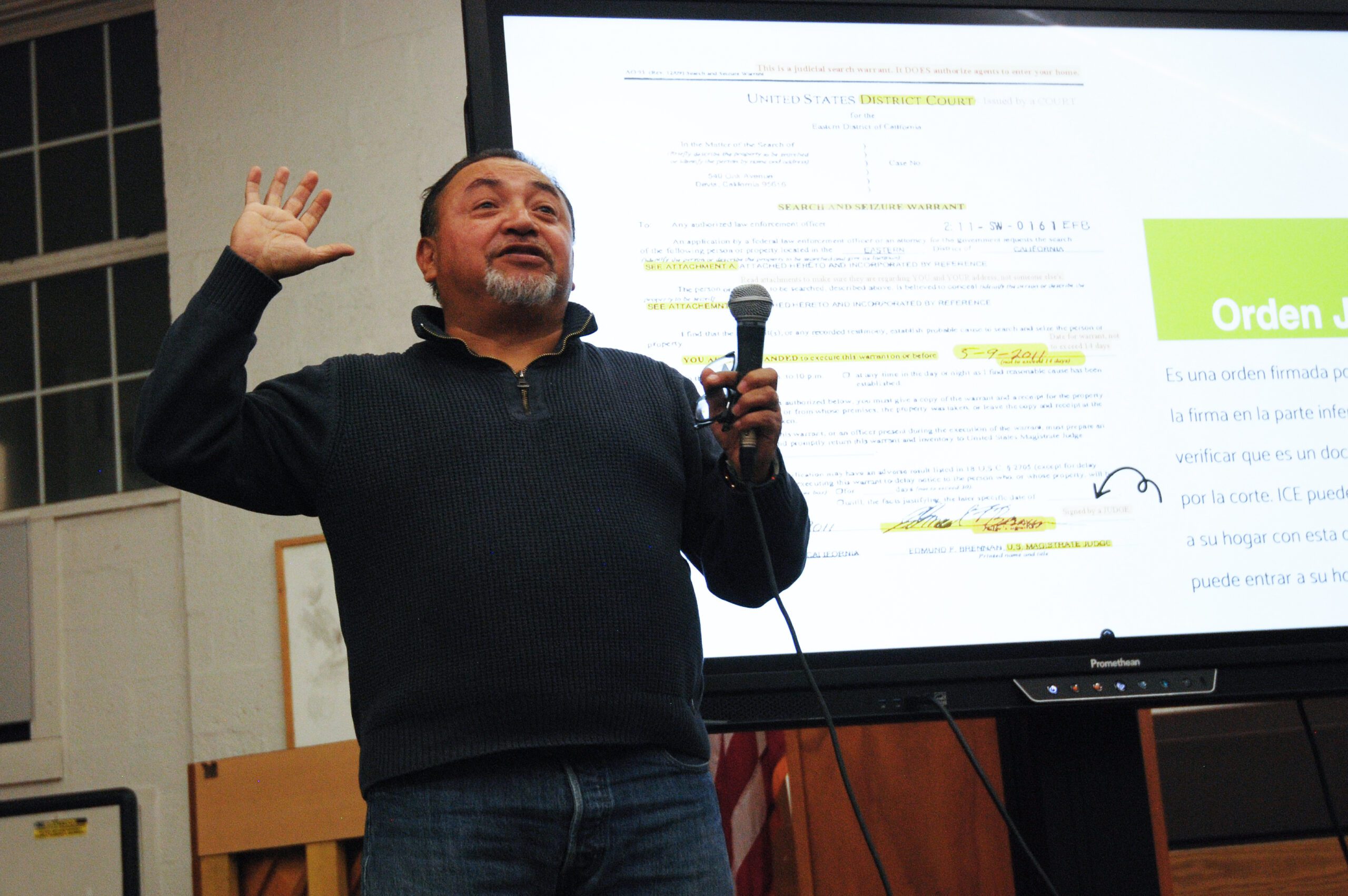
Guzmán emphasized the importance of keeping the door shut when ICE knocks. “Once you open the door, it’s the same as saying, ‘Look sir, come into my kitchen and make yourselves comfortable,’” Guzmán said, prompting scattered chuckles from the crowd.
The jokes seemed to lighten the mood at a time when many in the immigrant community are feeling anxious and distressed. Typically, Guzmán said, he has more than a hundred people attend such a workshop, but last Monday he had 60 cancellations. “People are afraid,” he said.
Guzmán addressed the fear, assuring attendees that arming themselves with knowledge is best. “Yes, there are going to be people who are going to be deported, but the best thing to do is this: prepare yourselves,” Guzmán said. “What I hope [comes of] this training is that each person here today leaves knowing their personal situation without the necessity of asking their friends, neighbors or having to consult a lawyer.”
Guzmán said knowing one’s rights can make an impression on police. “When you say those words — por qué me paró [why did you stop me] — you know what happens to the police officer? He immediately says to himself, ‘This person knows how to act, legally.’ It is an advantage for you,” Guzmán said.
In addition, he underscored that knowing one’s rights affirms one’s dignity. “It pleases the racists to see us in fear, so it is very important that we prepare ourselves,” he said.

In an interview after the meeting, Nadia Marin-Molina, co-executive director of the National Day Laborer Organizing Network, said fear is a strategy on the Trump administration’s part. If migrants, with or without status, become fearful or disparaged enough, they may choose to return to their home countries. There is a term for it: self-deportation.
“They just want people to leave,” Marin-Molina said.
Also in an interview, Theo Liebmann, a law professor who directs Hofstra University’s Youth Advocacy Clinic, said he had not seen an increase or decrease in immigration-related cases to date. He guesses, he said, “there are more people who want our help, but there are also more people who are afraid to come forward and say, ‘Hey, I don’t have status here, can you come help me?’”
The Youth Advocacy Clinic specializes in advocating for minors affected by immigration-related issues, especially pertaining to legal status.
At the end of the meeting, the Make the Road team passed out fliers with a QR code leading to the group’s “Deportation Defense Manual,” a free PDF intended to “supplement legal counsel” and lend advice to those impacted by ICE.
To wrap up the workshop, Guzmán revisited the theme of apprehension in the community, painfully obvious from the smaller-than-normal crowd. “It’s very difficult. There’s a lot of fear in the community, but we must continue together,” Guzmán said.
For more information on future Make the Road workshops, the organization can be contacted at its Long Island office at (718) 418-7690, or click here to link to Make the Road’s website.
More information on Hofstra’s Youth Advocacy Clinic can be found here.

Scott Brinton contributed to this story.
